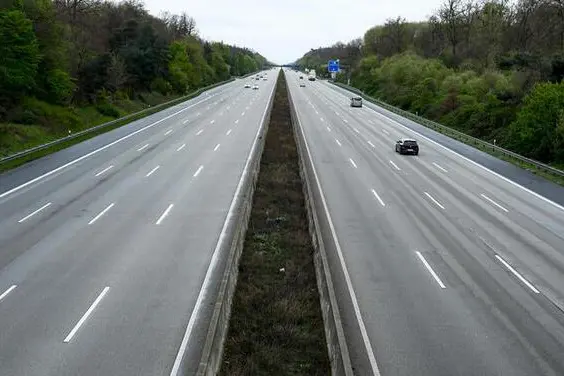PHOTO
BERLIN - A new study has found that Germany could save almost three times more carbon dioxide emissions than previously thought by introducing a speed limit on its highways, increasing pressure on Berlin to reconsider the politically sensitive issue.
Data from the Federal Environment Agency (UBA) published on Thursday showed a speed limit of 120 kilometres per hour (75 miles per hour) on motorways in Germany, where there are currently no speed restrictions, could cut total CO2 emissions from passenger cars and light commercial vehicles by about 6.7 million tonnes a year.
In an earlier study, with a different methodology, the agency expected such limit to result in 2.6 million CO2 cuts.
The transport ministry said the study also showed that a general speed limit would lead to a shift in traffic from the motorways to secondary roads, leading to more traffic jams and more accidents in cities and on rural roads with more noise and environmental pollutants for their residents.
"Traffic flow and road safety are proven to be greatest on motorways," a spokesperson for the ministry told Reuters, adding that the government had agreed on effective measures to achieve its climate goals, where a general speed limit was not included.
As Germany aims to become carbon neutral by 2045, the new results add to mounting pressure on the transport ministry, led by the liberal FDP party, to ramp up its CO2 cutting programme for the sector that has been the slowest to cut emissions.
To meet its 2022 greenhouse reduction target, the sector's emissions should have not exceeded 138.7 million tonnes of CO2-equivalents. UBA will announce in March whether the sector met that target but had cautioned in November that there was no indications it had managed to do so.
In 2021, transport in Germany emitted some 148 million tonnes of CO2, missing its target by around 3 million tonnes.
The transport ministry says its programme will cut some 13 million tonnes in the coming years, compensating for the 2021 missed target.
But environmentalists say the programme does not go far enough, urging the government to introduce speed limits on its motorways, with some activists supergluing themselves to roads in Berlin and other German cities demanding such limit.
Germany's ruling coalition has failed to agree on a speed limit due to opposition from the FDP.
UBA's results coincided with Germany's constitutional court announcing on Thursday that it had rejected a constitutional complaint against the government for not introducing a general speed limit on the country's motorways.
(Reporting by Riham Alkousaa; Editing by Alex Richardson, Kirsten Donovan)





















